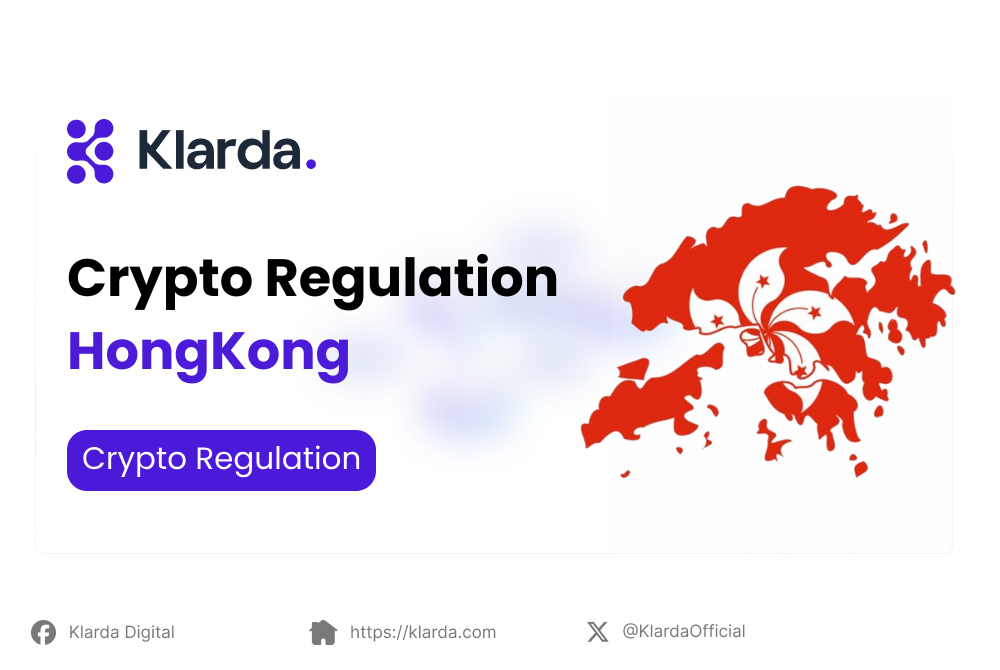Crypto Regulation in Hongkong
Cryptocurrency stands as a highly alluring sector characterized by remarkable growth. The details surrounding Hong Kong crypto regulation.
The Hong Kong government has opened the doors for investors to delve into the realm of cryptocurrency, thanks to regulations unveiled since February. Numerous cryptocurrency exchanges and companies have subsequently announced the establishment of subsidiaries in Hong Kong, aiming to tap into this promising market and obtain licenses. Key players in this initiative include OKX, Huobi, CoinEx, among others. For a more in-depth understanding of the Hong Kong crypto regulation, interested parties can refer to the information provided below.

KEY TAKEAWAYS
- While mainland China has largely prohibited cryptocurrencies, the landscape in Hong Kong paints a contrasting picture where cryptocurrency transactions are not only legal but also thriving.
- Hong Kong emerges as the most "crypto-ready" destination in 2023, leading all categories, including the number of blockchain startups exceeding 100,000 individuals and the proportionate number of cryptocurrency ATMs relative to the population.
- However, individuals aspiring to embark on cryptocurrency business ventures in Hong Kong must adhere to the newly introduced Anti-Money Laundering (AML) regulations.
- The announced measures include the publication of lists on the Virtual Asset Trading Platforms (VATP), launching public campaigns to inform the public about fraudulent activities, and monitoring suspicious VATP activities.
THE SITUATION OF THE CRYPTOCURRENCY MARKET IN HONG KONG
While mainland China has largely prohibited cryptocurrencies, the landscape in Hong Kong paints a contrasting picture where cryptocurrency transactions are not only legal but also thriving. Hong Kong emerges as the most "crypto-ready" destination in 2023, leading all categories, including the number of blockchain startups exceeding 100,000 individuals and the proportionate number of cryptocurrency ATMs relative to the population.
However, individuals aspiring to embark on cryptocurrency business ventures in Hong Kong must adhere to the newly introduced Anti-Money Laundering (AML) regulations. The announced measures include the publication of lists on the Virtual Asset Trading Platforms (VATP), launching public campaigns to inform the public about fraudulent activities, and monitoring suspicious VATP activities.
WHICH AUTHORITY OVERSEEN CRYPTOCURRENCY ASSETS AND RELATED SERVICES?
Currently, there is no specific legal framework in Hong Kong governing cryptocurrency assets, and as such, there is no single regulatory body overseeing these assets. However, some financial regulatory bodies have issued guidelines related to cryptocurrency assets, including the Securities and Futures Commission (SFC), the Hong Kong Monetary Authority (HKMA), and the Insurance Authority (IA).
If a cryptocurrency asset exhibits characteristics of securities as defined by the Securities and Futures Ordinance (SFO), it will be regulated by the SFC as a security under the SFO, along with other relevant laws and regulations.
Furthermore, the regulatory regime for providing/marketing financial products in Hong Kong will apply if the cryptocurrency asset qualifies as a security. Cryptocurrency assets categorized as securities may also be subject to laws governing regulated activities, attracting licensing and authorization requirements.
Are there any regulations regarding cryptocurrency assets or cryptocurrency service providers such as exchanges?
As explained in Q1, SFO governs cryptocurrency assets with characteristics of securities. Financial regulatory bodies such as HKMA and SFC have issued supplementary guidelines for regulated entities involved in activities related to cryptocurrency assets, including:
- SFC's legal declaration and relevant licensing terms for licensed asset managers in Hong Kong concerning the management and distribution of investment funds in virtual assets.
- HKMA's guidelines for authorized institutions (including licensed banks) on management approaches regarding the engagement with authorized entities dealing in cryptocurrency services and assets.
- The joint HKMA-SFC Code on the distribution of virtual asset-related products, as well as advisory and transaction services related to virtual assets.
The regulatory mechanism related to the Virtual Asset Trading Platforms (VATP) regulation is currently operating on an "opt-in" basis. Concentrated VATP may "opt-in" to the regulation by proposing the trading of at least one token on a platform deemed to be a security. Opted-in VATPs will need to be licensed by the SFC, and after licensing, they must comply with licensing conditions (including providing services exclusively to professional investors) as well as other conduct requirements.
On November 3, 2020, the Financial Services and the Treasury Bureau (FSTB) published a consultation paper on proposed amendments to the Anti-Money Laundering and Counter-Terrorist Financing Ordinance (AMLO) to bring virtual asset service providers (VASPs) operating exchanges that do not qualify as "securities" under SFC supervision (VASP regime). The new rules are designed to narrow the existing legal gap and regulate non-securities virtual asset service providers (also known as virtual asset service providers or VASPs) for the first time. FSTB announced the consultation conclusion on the VASP regime in May 2021, and the draft amendment bill is expected to be introduced to the Legislative Council in Q2 2022. The VASP regime may come into effect in 2022/2023.
The provided information has given you insights into the state of Hong Kong crypto regulation. From these details, it becomes apparent that Hong Kong is actively advancing in the realm of cryptocurrencies, introducing various policies and factors to drive the domestic market forward.
Updated 9 months ago